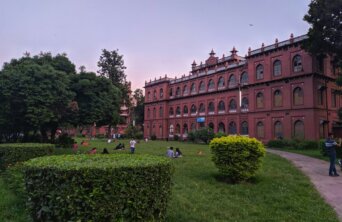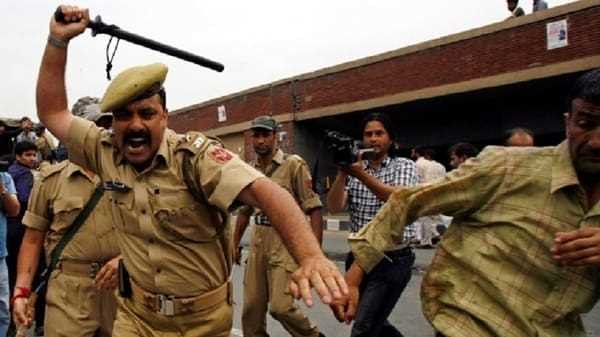- About
- Topics
- Story
- In-Depth
- Picks
- Opinion
- News
- Donate
- Signup for our newsletterOur Editors' Best Picks.Send
Read, Debate: Engage.
| topic: | Political violence |
|---|---|
| located: | Bangladesh, India |
| editor: | Mehroob Mushtaq |
Editor’s note: this piece was co-authored by Mehroob Mushtaq and Numan Bhat.
The recent unrest in Bangladesh has cast a dark shadow over the lives of many, but for a group of Kashmiri students, it has been nothing short of a nightmare. These young individuals, who had pursued higher education in a foreign land, suddenly found themselves amid chaos, far from the safety of their homes in Kashmir.
Protests broke out on 1 July on campus at Dhaka University. The situation in Bangladesh rapidly deteriorated, with violence breaking out in various parts of the country and students left stranded, frightened, and unsure of what the future held. Their once-promising academic pursuits were thrown into disarray as they grappled with the immediate challenge of ensuring their safety.
A student from Srinagar, who has been studying medicine at East West Medical College in Dhaka for the past four years, spoke to FairPlanet anonymously about the situation: “The main issue is the authorities’ decision to introduce a quota system for the children and grandchildren of war veterans, which has caused public outrage. However, it’s not only about the reservation. The use of the term’ Razakaar,’ which is very offensive in Bangladesh due to its association with betrayal during the 1971 independence war, has further fuelled the protests.”
Many of these students recounted their experiences of navigating the violence that unfolded around them. “It was like living in a war zone,” one student told FairPlanet, describing the constant fear that gripped them as they heard gunshots and explosions in the distance. “We’re not exactly trapped, but we have no official guidance,” said Tabinda Reshi, a student from Kashmir. “We were told that colleges are closed indefinitely, with no timeline, so we’re unsure whether to stay or go home.” Despite mobile internet services being suspended in Bangladesh, some areas still have WiFi, allowing international students like us to contact our families. “I managed to reach my family, but many students can’t access the internet, making it hard to contact their families. Some friends called my local Bengali number, asking me to let their families know they are safe,” she added.
The situation in Bangladesh remained tense even after the Supreme Court’s Appellate Division overturned a High Court decision on 21 July that had reinstated a system reserving about 30% of government jobs for the children and grandchildren of veterans from the country’s 1971 war of independence against Pakistan.
Students pointed out that protesters were being killed as security forces used excessive force to control the unrest. The protests, which began peacefully on campuses three weeks ago, turned deadly on 16 July when students at Dhaka University clashed with the police.
The uncertainty of their future now looms large. Some students have managed to return to Kashmir, but their ordeal is far from over. The academic institutions in Bangladesh are in turmoil, with classes suspended indefinitely and the status of ongoing exams and future semesters hanging in the balance, Kashmir student Shahid Dar told FairPlanet. For those who remain in Bangladesh, the situation is even more precarious, with no guarantee of when or if they will be able to resume their studies.
The promise of a better future through higher education has been overshadowed by the harsh reality of the risks involved in studying in a volatile region. For those who have returned home, the challenge now is to find a way to continue their education, whether by transferring to institutions in India or exploring online options, another Kashmir student, Abdul Basit, told FairPlanet. However, these alternatives come with their challenges, from financial constraints to issues with credit transfers, he said.
After a month of closures caused by the ongoing crisis, the Ministry of Education issued a directive on 15 August to reopen all educational institutions under its jurisdiction. Schools and colleges resumed operations on 18 August, providing much-needed relief to students significantly impacted by the turmoil.
Image by Shaikh Ahmed.

